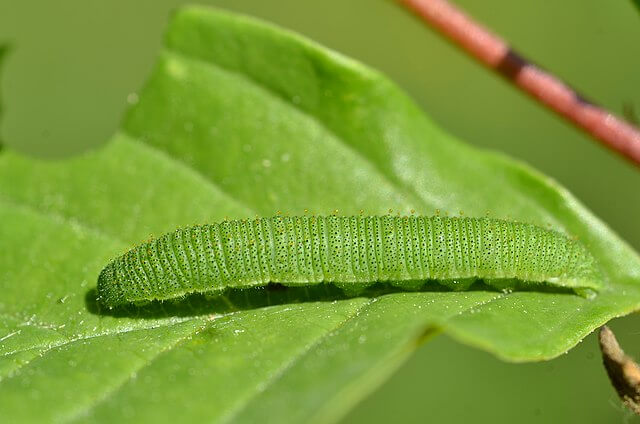
A study conducted by the University of Cambridge on nature reserves and an allotment reveals the vulnerability of caterpillars to climate change.
The research, published in Ecology and Evolution, discovered that caterpillar larvae exhibit poor temperature regulation, reducing their likelihood of surviving extreme weather conditions.
Dr. Esme Ashe-Jepson, leading the study, highlights the potential consequences, including a decline in “beautiful, charismatic butterflies,” affecting both pollination and bird populations dependent on caterpillars.
The research, conducted in Bedfordshire and Cambridgeshire, addresses a significant gap in understanding the impact of extreme temperatures on larvae, especially in the context of climate change-associated rising temperatures and intensified weather events.
The study recommends creating microclimates and structuring green spaces to provide shade as a strategy to protect caterpillars from extreme weather.
“It doesn’t need to be a massive tree, it could just be a foot strip in a garden with extra long grass,” she said.
Data collection occurred at Wildlife Trust nature reserves in Pegsdon Hills, Hitchin, Hertfordshire, and Blow’s Down and Totternhoe, Dunstable, Bedfordshire.
The focus was on 12 butterfly species, including well-known ones such as brimstone, red admiral, and small tortoiseshell. Information from large and small white butterflies, which do not breed on nature reserves, was gathered from an allotment in Girton, near Cambridge.
Dr Ashe-Jepson said: “Butterflies are part of our cultural heritage, beautiful and charismatic by themselves, but it’s also about biodiversity.
“They are pollinators and food for birds – blue tits rely almost entirely on feeding caterpillars to their young.”
——————————————————————————
At Natural World Fund, we are passionate about stopping the decline in our wildlife.
The decline in our wildlife is shocking and frightening. Without much more support, many of the animals we know and love will continue in their decline towards extinction.
When you help to restore a patch of degraded land through rewilding to forests, meadows, or wetlands, you have a massive impact on the biodiversity at a local level. You give animals a home and food that they otherwise would not have had, and it has a positive snowball effect on the food chain.
We are convinced that this is much better for the UK than growing lots of fast-growing coniferous trees, solely to remove carbon, that don’t actually help our animals to thrive.
This is why we stand for restoring nature in the UK through responsible rewilding. For us, it is the right thing to do. Let’s do what’s right for nature!
Donate today at https://naturalworldfund.com/ and join in the solution!

